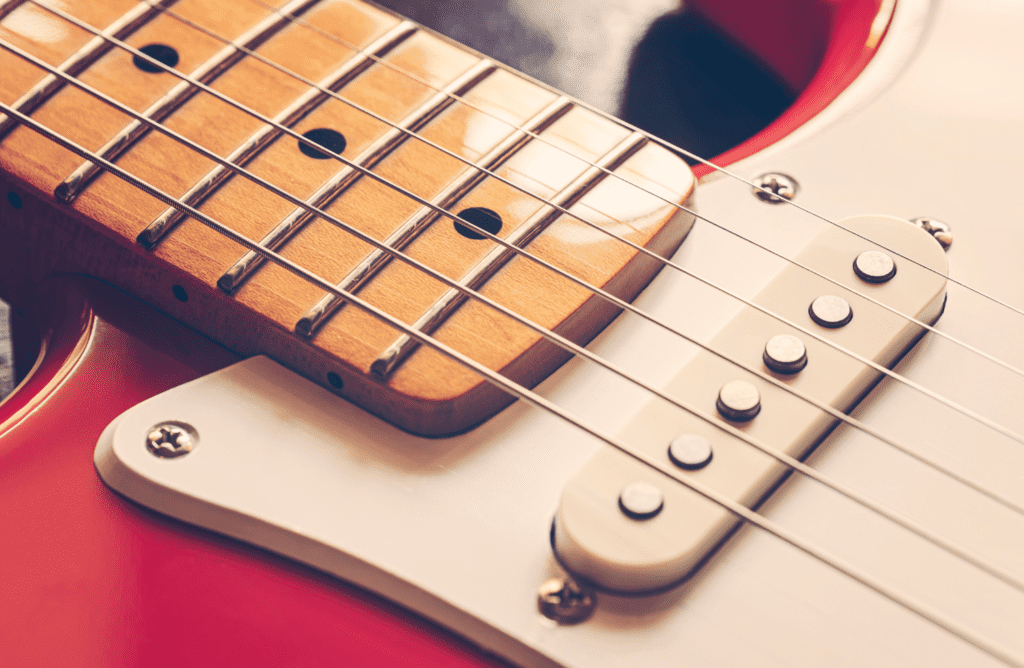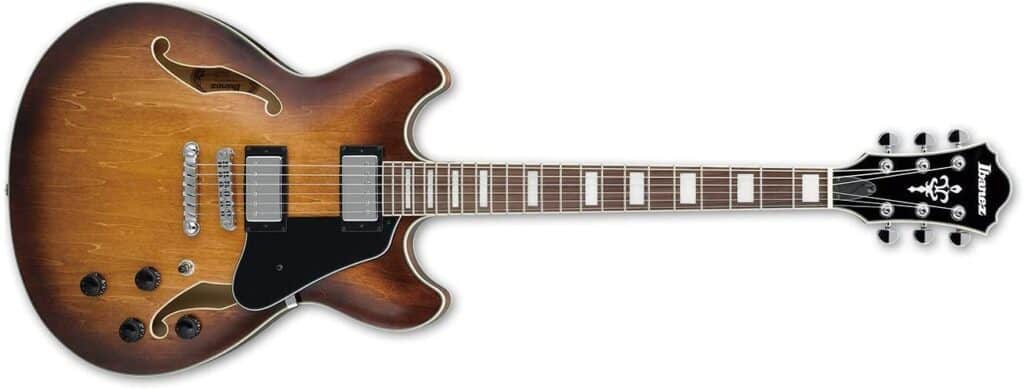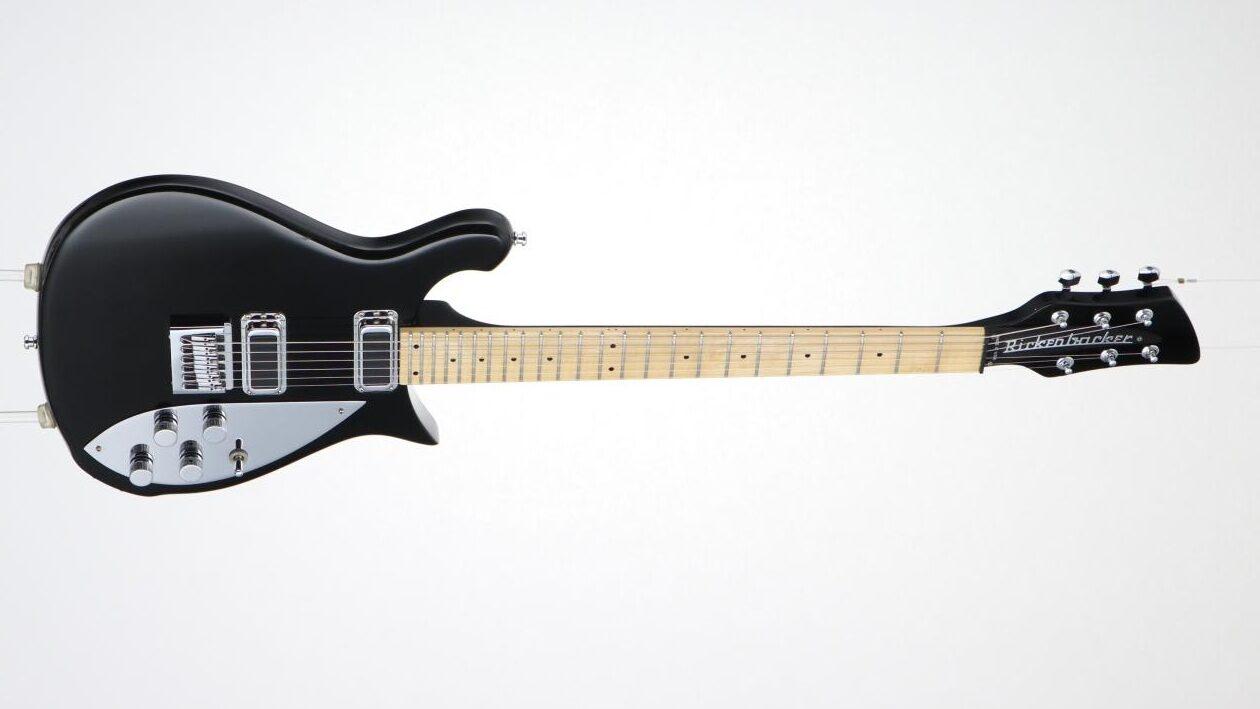Guitar pickups. They are part of the instrument and are certainly very important. For those who are taking their first steps in music, it may go unnoticed, but the type of pickup that the guitar has is essential to the sound and tone of the instrument.
But how to choose the right guitar pickup type for you? What should be taken into consideration when making this choice? What are the types of guitar pickups that exist and for what style are they recommended? In this article, we’ll go over all of these questions and more.
Table of Contents
What Are Guitar pickups?
To put it simply, guitar pickups are responsible for picking up the vibrations emitted by the strings and transforming them into electrical signals. These signals are transmitted through a cable to an amplifier or to recording software.
The main types of guitar pickups are electromagnetic. They work on the principle of induction. Formed by a magnet surrounded by a copper coil, the equipment can pick up changes in the magnetic field that are generated by the vibrations of the strings.

Brief History of Guitar Pickups
The history of guitar pickups begins in the 1930s with Adolph Rickenbacker. The first pickup was of the electromagnetic type, with a magnet and a coil around it. Among the materials used to make the equipment at the time were nickel, copper, and aluminum.
At the end of the same decade, G.B. Jonas introduced a new type of magnet, made mainly from aluminum, nickel, and cobalt. It became known as Alnico (joining the first two letters of the main elements) and represented a significant evolution for guitar pickups.
Another advance worth mentioning was the conception of humbuckers in the 1950s. Designed by Seth Lover, this type of pickup has an extremely relevant characteristic: it does not generate noise.
Many other types of guitar pickups have been invented during the ages. Now let’s look at the main ones and understand what kind of sound they are best suited for. This way you will know which pickup to choose when buying your instrument.
Different Types of Guitar Pickups
After you play the guitar for a while, you start to realize that every simple thing has dozens of variations. From nuts to bridges, guitar picks, strings, and whatnot. Pickups are no different, so here’s a brief overview of different types of guitar pickups.
It can be a real task to choose the proper pickup as there are so many choices. One easy way to narrow down your choices is go for an artist you like and figure out which model pickup he is using in his guitars and work from there. There are numerous websites dedicated to this exact thing.
Single Coil Pickups
This type of pickup is composed of only one coil, so they are more susceptible to interference, which generates noise. It has a cleaner, brighter sound and, when compared to humbuckers, shriller.
Popularized by Fender guitars as early as the 1950s, these pickups are suitable for a wide range of musical styles, such as funk and blues. Because of the noise, it is not the best pickup for heavy rockers…

Humbucker Pickups
Created to solve the noise problem presented by single coils, the humbucker was designed in the 1950s. The name comes from the “hum” noise that was generated by single-coil pickups.
The use of two coils causes the magnetic fields to cancel each other out and, consequently, greatly reduces the external noise picked up by the equipment. This makes this type of pickup have more pronounced bass by characteristic and makes it perfect for those who like to play heavier rock types.
Humbucker’s are generally used where more distortion is needed. Such as many heavier genres such as heavy metal. They are darker and more “Brutal” sounding. Van Halen is one famous player who uses humbucker-equipped guitars.

P-90 Pickups
P-90 pickups can be considered the oldest singles coils. Also very noisy, they have vintage and anasolated sound characteristics. The first pickups of this type had a bezel with a shape resembling a dog’s ear.
These pickups cannot be installed on every type of guitar because of their shape.

Stacked Pickups
This type of pickup was created to obtain the sound of single coils but without the noise. For this, two coils were stacked, but the result was not exactly what was expected by the creators.
Despite this, stacked pickups come closer to a single-coil sound and appearance, and actually have noise cancellation.
Mini Humbucker Pickups
These are humbucker pickups with a reduced size. Because of this smaller shape, they have less output and highlighted mid frequencies. Like the P-90, they cannot be installed on every guitar because of their shape.

High vs Low Output Pickups
The main difference between high and low output picks is, you guessed it, the level of output they produce. You probably ask yourself now why would you want a low output pickup when you can get a high output (or “hot”) pickup.
High output (hot) pickups tend to excel when it comes to highly distorted or overdriven sounds. Low output pickups are generally better when it comes to cleaner sounds.
Active vs Passive Pickups
The main difference between active and passive pickups is that active pickups contain a preamp circuit (that requires power, usually through a 9V battery) and passive pickups don’t. That’s the entire difference between active and passive pickups. That being said, that difference creates a whole chain of things that differentiate their sounds.
Active Pickups Characteristics
Active pickups tend to have higher output, tighter bass, and clearer high frequencies. They have lower magnetic power, which might sound negligible, but a strong magnet pulls the strings toward their resting point in the center, reducing their sustain dramatically. And most importantly, they do a better job than passive pickups in keeping all the high frequency when using long cables.
Passive Pickups Characteristics
Passive pickups tend to sound warmer and more organic than active pickups, and their tone is more recognizable. They are a lot simpler to install or replace, and require little to no maintenance (no battery, remember?). On the other hand, passive pickups are more sensitive to feedback and are a lot noisier than active ones.
Who Makes Guitar Pickups?
For most guitar players, it’s hard to talk about different types of guitar pickup without mentioning the one company that makes them all: Seymour Duncan. Seymour Duncan is the most well-known guitar pickup manufacturer in the world.
There are other pickup makers that are worth mentioning, though. Makers such as EMG, DiMarzio, and even Fender and Gibson shouldn’t be ignored. Each has its own specialty, and you should definitely do your research before you choose which pickups to buy for your guitar.
How Much do Guitar Pickups Cost?
Guitar pickups from major manufacturers usually run anywhere from $100-$200. Of course for those with no real limitations as far as cash is concerned there are “Boutique” Pickup manufacturers who custom wind their pickups to the exact sound you want, but these often run as high as $400.
Which Type of Pickups is the Best?
It is impossible to say which is the best option because of the endless variables such as guitar model, musical style, cost vs. benefit, etc.
If you still don’t have your favorite, a tip to identify it is to analyze the type of pickup your guitar idols use and see if it really suits you.
Your style is really unique in comparison to other people I’ve read stuff from. Thanks for posting when you have the opportunity.